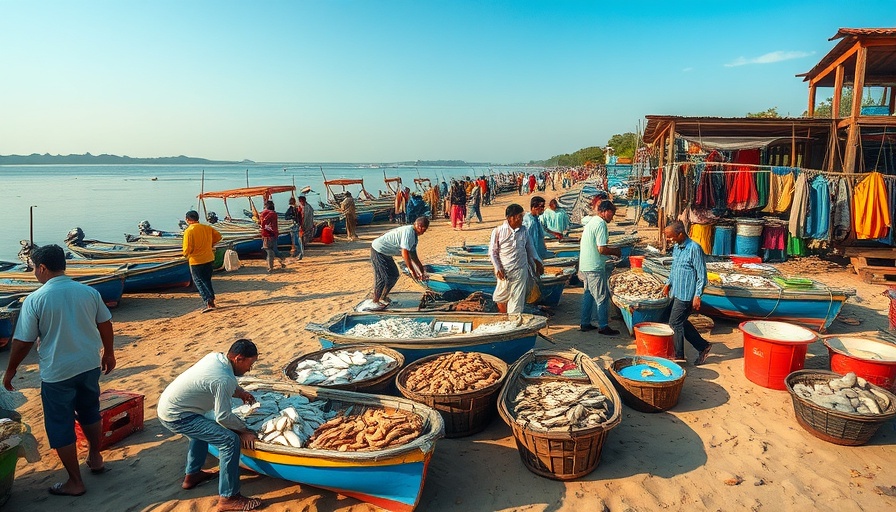
Empowerment Against Adversity: A Unique Struggle
The women of No Sex for Fish have truly rewritten their narrative in a society filled with barriers. In Kenya’s Nduru Beach, these fishmongers formed a cooperative that defied the expectations of a patriarchal system where sex was the price of survival. Their story is one of resilience—taking back control, they obtained their own fishing boats and set out to pursue a sustainable livelihood.
The Impact of Natural Disasters
However, their achievements are now shadowed by uncertain futures. The devastating floods that struck Nduru Beach in 2020 destroyed homes and disrupted their business, leaving many without a stable means of income. The harsh realities these women face result from both natural disasters and societal challenges, which together paint a picture of precarious survival.
Health Risks and Uncertainties
Among the pressing risks is the health crisis looming over many women in this cooperative. Eleven of their members are HIV positive and depend on life-saving anti-retroviral medication. A reliance on U.S. aid for continuous access to medications is especially worrying following significant cuts to vital health programs in recent years. With their health at stake, the prospect of disrupted medication supplies presents an additional layer of anxiety.
Lessons in Leadership: Women Rising Together
Justine Adhiambo Obura, who chairs the No Sex for Fish, embodies the essence of community support and leadership. Her voice resonates with the strength and unity that these women have cultivated in response to their struggles. By working together, they’ve created not just a cooperative but a community bound by shared challenges and triumphs, showcasing the transformative power of collective action.
Future Outlook: Growth and Sustainability
Looking ahead, the women face the dual challenge of rebuilding their disrupted lives while ensuring their fisheries can weather future storms, both proverbial and literal. As they navigate through recovery efforts and health uncertainties, their experiences underscore the need for effective support systems. Advocating for policies that address health and climate resilience should be a priority for stakeholders who wish to see sustainable growth in this region.
Empathy Through Experience: A Call for Attention
The plight of the No Sex for Fish women serves as a poignant reminder of how interconnected personal survival is with broader societal frameworks. Their story is not merely about fishing; it’s about human dignity, resilience, and the quest for autonomy amid hardship. As these women strive to reclaim their lives, let us rally in support of their journey toward independence and sustainability.
In conclusion, the narrative of the No Sex for Fish women extends far beyond the shores of Nduru Beach. It invites us all to engage with and invest in community resilience, challenging us to recognize our roles in fostering a future that values strength in adversity. Their fight is one of survival, empowerment, and hope. Join us in advocating for those who are bravely battling adversity.
 Add Row
Add Row  Add
Add 




 Add Row
Add Row  Add
Add 

Write A Comment